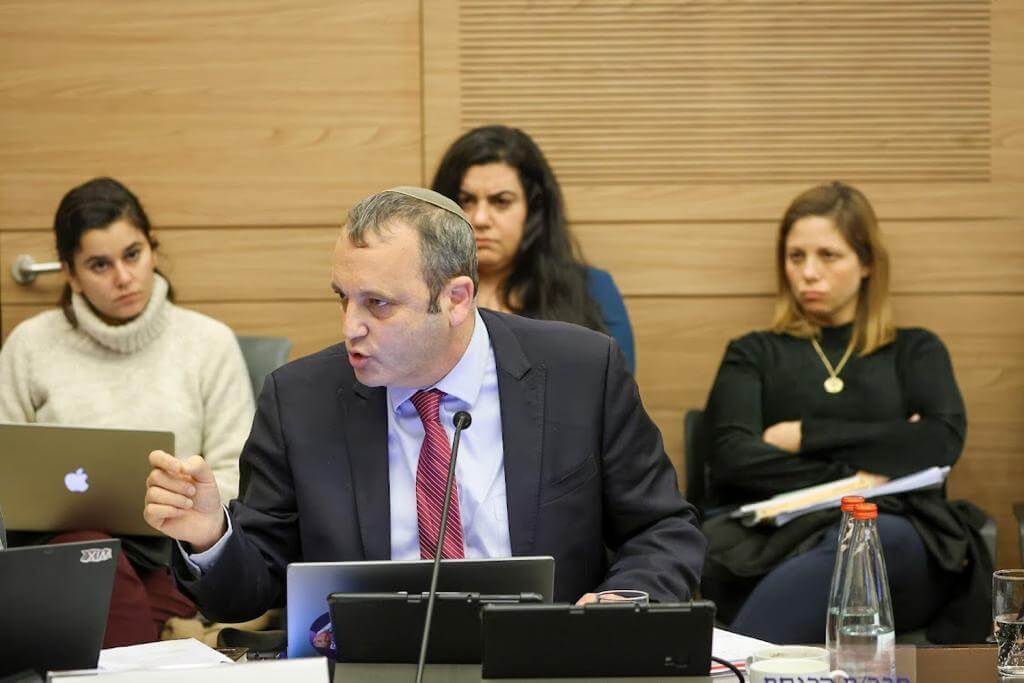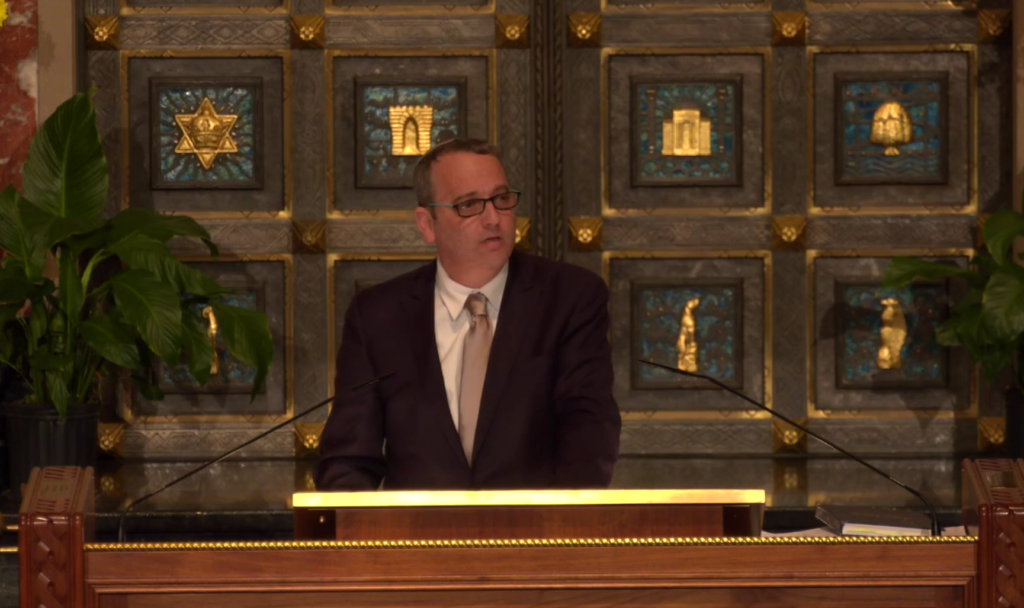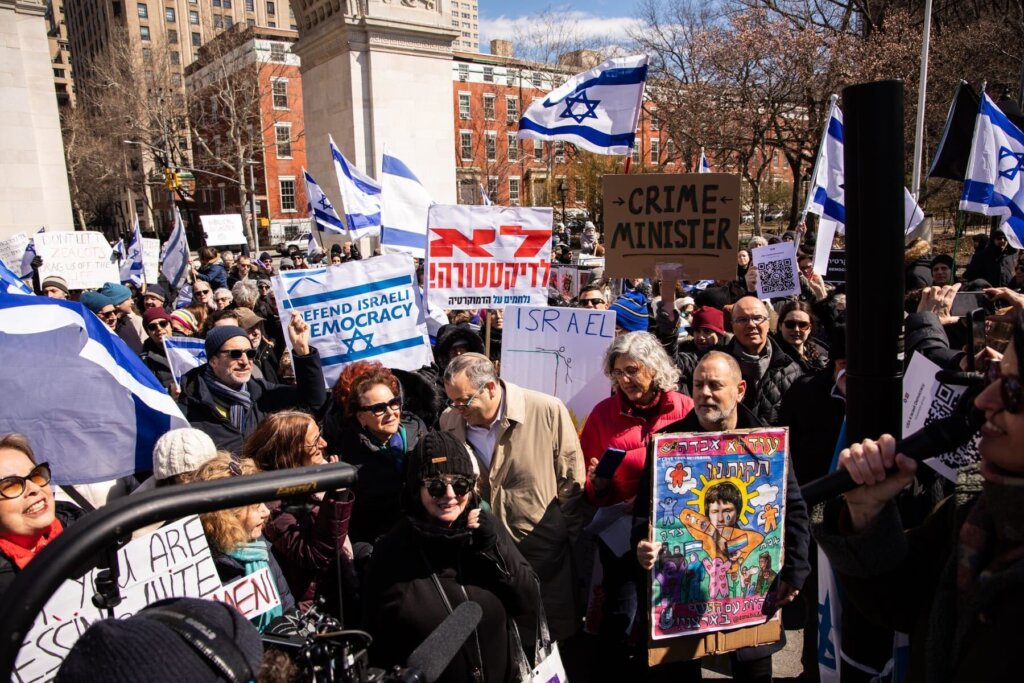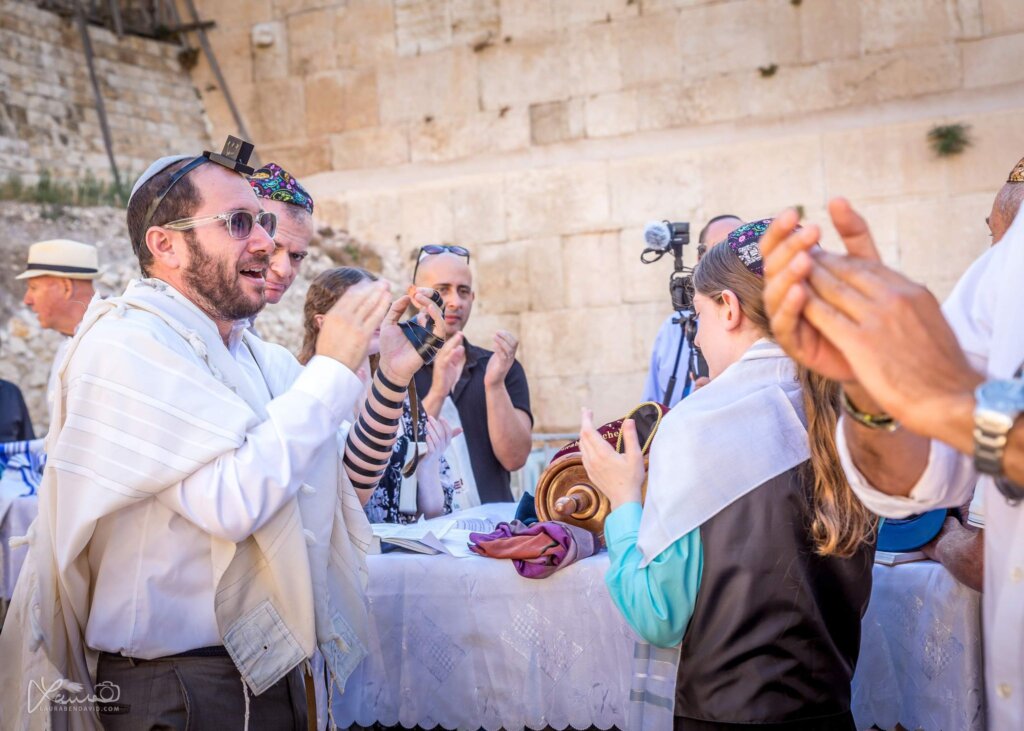‘Not a time to be silent’: Reform Israeli rabbi and lawmaker urges American Jews to take a stand on Israel’s constitutional crisis
Gilad Kariv warns that Israel’s right-wing government has more plans to curtail democracy and religious pluralism

Knesset member Gilad Kariv at the Knesset constitution committee. Photo by Office of Gilad Kariv
The Knesset member and rabbi who headed the Reform movement in Israel flew to the U.S. to deliver an urgent message to American Jews: The Israelis who are trying to defend democracy and religious pluralism need your help.
“This is not the time to be silent or to be polite,” Gilad Kariv said in New York earlier this week, talking about Israel’s right wing-led government’s judicial reform plan. “Sitting on the fence is neither a democratic option nor a Zionist option.”
The Labor Party member said it was important to make his plea to U.S. Jews in person. He spoke to congregations at Reform and Conservative New York-area synagogues and met with Jewish organizational leaders and lawmakers. If American Jews seem to understand that the judicial reform plan will demolish the balance of power in Israel, he said, they must also realize that it’s their responsibility to help stop it.
“I am encouraging you all to be not only fully aware of the danger of the judiciary reform but to be fully involved in this democratic protest,” Kariv, 49, told members of the Brooklyn Heights Synagogue on Saturday night. He repeated his appeal during Shabbat services at Congregation Rodeph Sholom and Park Avenue Synagogue in Manhattan and at a Union for Reform Judaism board meeting.

The current Israeli government’s plans, he continued, also pose a direct threat to American Jews, in that they include changes to the Law of Return and would consolidate Orthodox control over Israeli life.
Designed by leaders of Prime Minister Benjamin Netanyahu’s party, the judicial plan, Kariv warned, is just a first step to undercut the shared values of American and Israeli Jews.
Protests, big and small
Over the past 12 weeks, Israelis have turned out in droves to denounce the plan. If it succeeds, lawmakers would be able to overturn Supreme Court decisions with a one-vote majority, and the Knesset would have unprecedented power to appoint judges.
A recent survey showed that at least 18% of Israelis, including 14% of Arab Israelis, have participated in one or more of the protests. They have also spread to major cities across the U.S. but in relatively lower numbers. Major Jewish organizations have also chimed in and expressed their concerns.
But in Kariv’s eyes, it’s not enough. The well-being of Israel “is a crucial element to the future of non-Orthodox Jews in America,” he said in an interview at his Knesset office ahead of the trip. The changes happening in Israel right now, he said, do not align with American Jewish interests.
Haredi parties have increasingly exercised control over Israeli public life in the past two decades. In charge of the ministry for religious services, they have vetoed efforts to loosen Israel’s laws concerning conversion, kashrut and other religious practices, and stood in the way of an egalitarian space at the Western Wall — an initiative strongly supported by American non-Orthodox rabbis and which Kariv helped negotiate.
A proposed tightening of the Law of Return, which now allows anyone with at least one Jewish grandparent to immigrate to Israel as long as they do not practice another religion, has also raised concerns among American Jews.
At least 48% of Jewish Americans identify with the Reform and Conservative movements, according to the Pew Research Center. And most American Jews report feeling connected to Israel — visiting the country, buying its bonds and sending their children there on summer trips or for a semester in college.
But relations between diaspora Jews and Israel have deteriorated under Netanyahu, who is not Orthodox but forms coalitions with Orthodox parties — the most recent of which is the most hardline. Though the Haredi make up about 14% of Israelis, they have the highest growth rate in the nation and outsized influence thanks to their alliance with non-Orthodox conservatives in the Knesset.
A recent poll by the Haredi news site Kikar Shabbat showed that 88% of Haredi in Israel support the judicial overhaul in its current form. Talks are ongoing between the government and the opposition, but Netanyahu recently rejected a compromise offered by President Isaac Herzog.

Kariv’s American tour also took him to the weekly pro-democracy rally at Washington Square Park on Sunday. He met with Rep. Jerry Nadler (D-N.Y.), the dean of the informal Jewish Caucus, and with the staff of freshman Rep. Dan Goldman (D-N.Y.), during his weekend visit. Kariv told them and anyone else who would listen that the judiciary plan has opened the door to future legislation that will strengthen the Haredi grip on Israel. He predicted that the protests in Israel will grow.
But however energetic his attempts to get American Jews to involve themselves in Israeli politics, Kariv expressed a general pessimism about the judicial overhaul debate.
“I’m not so sure that we can win this battle,” he said.
But he holds out hope, he continued, because the government’s bold moves have put the fragility of democracy in stark relief, and presented a “real opportunity to rebuild the moderate and liberal democratic camp in Israel.”
From synagogue to the Knesset
Kariv was born and raised in Israel, but has spent significant time in the U.S.
He was ordained at Hebrew Union College-Jewish Institute of Religion and received a master’s degree in constitutional law from Northwestern University in Chicago, through a combined program with Tel Aviv University. He interned for the state attorney’s office in the Supreme Court in the early 2000s.
In Israel he served as director of the Reform movement, a relatively small community, before he entered politics. And he negotiated the 2017 Kotel deal, to make space for various streams of Judiasm at the holy site. But in recent years both the Netanyahu and the Bennett-led governments shelved the agreement amid strong Orthodox opposition. The pavilion for egalitarian prayer isn’t formally recognized by the government and on Rosh Chodesh — the beginning of each month — Kariv joins Women of the Wall’s morning prayer service at the Wall’s main plaza, which has strict gender-segregation rules. They are commonly taunted by Haredi young men.

After several election bids, Kariv entered the Knesset in 2021 as its first Reform rabbi. He is now the only liberal Zionist man in the body. His three Labor colleagues are women and the Meretz party failed to reach the threshold to enter the Knesset in the last election. Kariv said he feels comfortable as both rabbi and lawmaker because Israel political and religious institutions intersect in Israel.
But some of his Haredi colleagues have ridiculed him, as a “priest” and a “goy,” and compared him to a pig.
Kariv the legislator
Kariv served as chair of the influential constitution committee in the previous, more moderate government led by Naftali Bennett and Yair Lapid. Then, key members of that coalition attempted to end the Chief Rabbinate’s monopoly over the kashrut supervision industry to increase competition. They also tried to reform the rules governing conversion to Judaism. But that government lost its majority after a year, leading to the reelection of Netanyahu for a sixth term.
Kariv acknowledged that Bennett and Lapid’s so-called “change government” failed to make any strides to advance religious pluralism. “Bennett came with a very deep commitment to the Orthodox establishment,” he said, and told him that he feared change would mobilize the Haredi parties to demonstrate in large numbers. “Our government was not brave enough to move forward with some critical reforms in the area of religion and state,” Kariv said.
In recent years, his presence in the Knesset has helped Haredi members’ soften their attitudes toward Reform Jews, he said, though he doesn’t expect them to embrace him anytime soon.
“I really believe in a slow evolution,” he said.















